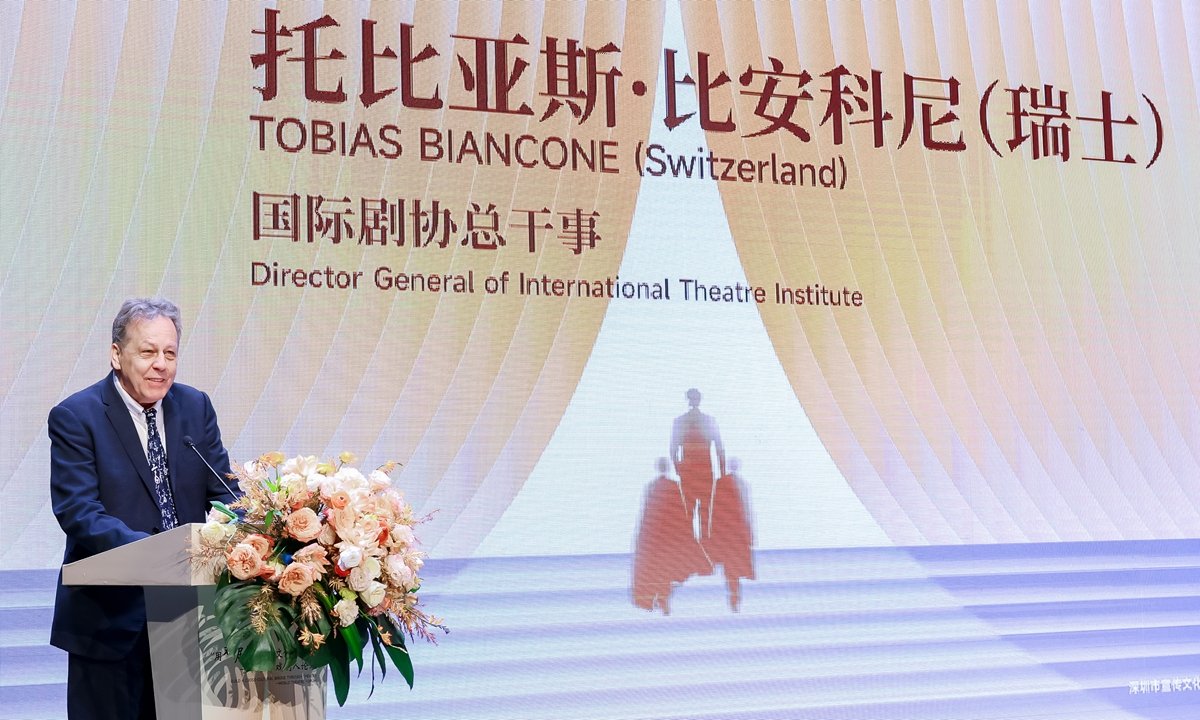In the wake of the COVID-19 pandemic, the performing arts sector is experiencing a significant resurgence, marked by a collaborative spirit and a shared goal of cultural unification. This resurgence is vividly illustrated in the recent gatherings of theater organizations and troupes from around the world in Shenzhen, South China’s Guangdong Province. These gatherings, part of various theater festivals, have become a testament to the power of the performing arts in building cross-cultural bridges and promoting global understanding.
Tobias Biancone, director-general of the International Theatre Institute (ITI), emphasizes the crucial role of the performing arts, particularly theater, in fostering dialogue and mutual understanding. He notes that theater is inherently a form of dialogue, evident in both the interactions between actors on stage and the connection they establish with the audience. This dialogue is a vital tool for promoting peace and allowing individuals to live enriching lives.
Shenzhen’s hosting of the China Campus Theatre Festival, BeSeTo Theatre Festival, and Nanshan Theatre Festival has provided a platform for showcasing a wide range of international performances. These festivals have become arenas for experts and audiences to witness the diversity and innovation in global theater arts. Biancone, having experienced various international shows, was particularly impressed by the Chinese stage adaptation of “Six Chapters of a Floating Life,” which revealed the rich variety and unexpected elements in Chinese theater, extending far beyond the well-known Peking Opera.
Biancone also highlights the importance of education in intercultural bridge-building, asserting that learning about different art forms opens doors to new cultures and fosters mutual respect and peace. He views Shenzhen as a pivotal window to China’s performing arts, playing a significant role in these international exchanges.
Chen Yongquan, Party chief of the China Drama Association, shares the aspiration of using drama to create emotional and spiritual connections among people globally. He envisions bringing a feast of drama to Shenzhen audiences, strengthening the bonds between different cultures.
The World Theatre Forum, an integral part of these festivals, has seen theater experts, heads, and directors exchange views on cross-cultural collaboration in theater. Cho Man-soo, a South Korean drama critic and director, discusses the BeSeTo Festival’s role as an exchange platform for theater practitioners from China, South Korea, and Japan. He underscores the importance of both traditional and evolving art forms in connecting artists and audiences from diverse backgrounds and facilitating cross-cultural communication.
Yin Xiaodong, president of the National Academy of Chinese Theatre Arts, advocates for youth involvement in these cultural exchanges. He recognizes theater as a unique art form that provides a lens for understanding the world and perceiving life. He points out how Asian art forms like India’s Sanskrit dramas, Chinese Xiqu, Korea’s Pansori, and Japan’s Kabuki have continued to evolve and thrive through such exchanges.
Screenwriter He Jiping reflects on how integrating the essence of Chinese culture with Eastern and Western influences, particularly from Hong Kong, has shaped her creative context. She acknowledges that the blend of cultures from the Chinese mainland and Hong Kong has been a nourishing force in her work.
In summary, these theater festivals and forums in Shenzhen symbolize a beacon of hope and collaboration for the performing arts community worldwide. They demonstrate the vital role of theater in bridging cultural divides, enhancing mutual understanding, and fostering a more interconnected and peaceful world. This post-pandemic era presents an opportunity for the performing arts to unite artists and audiences globally, celebrating the diversity and richness of cultural expressions through the timeless art of theater.
READ MORE:
